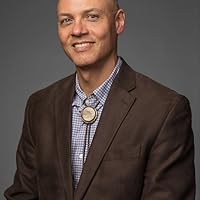Land Acknowledgements Quotes
Quotes tagged as "land-acknowledgements"
Showing 1-3 of 3
“It Was Never Stolen Land. It Was Bought and Paid For. Now the Indians Are Trying to Renege.” By James Fulford, December 4, 2020, VDARE
[Fulford is quoting Felix S. Cohen:]
Fortunately for the security of American real estate titles, the business of securing cessions of Indian titles has been, on the whole, conscientiously pursued by the Federal Government, as long as there has been a Federal Government. The notion that America was stolen from the Indians is one of the myths by which we Americans are prone to hide our real virtues and make our idealism look as hard-boiled as possible. We are probably the one great nation in the world that has consistently sought to deal with an aboriginal population on fair and equitable terms. We have not always succeeded in this effort but our deviations have not been typical.
It is, in fact, difficult to understand the decisions on Indian title or to appreciate their scope and their limitations if one views the history of American land settlement as a history of wholesale robbery."
The quotation is from The Legal Conscience: Selected Papers Of Felix S Cohen,1960.”
― The Legal Conscience: Selected Papers of Felix S. Cohen
[Fulford is quoting Felix S. Cohen:]
Fortunately for the security of American real estate titles, the business of securing cessions of Indian titles has been, on the whole, conscientiously pursued by the Federal Government, as long as there has been a Federal Government. The notion that America was stolen from the Indians is one of the myths by which we Americans are prone to hide our real virtues and make our idealism look as hard-boiled as possible. We are probably the one great nation in the world that has consistently sought to deal with an aboriginal population on fair and equitable terms. We have not always succeeded in this effort but our deviations have not been typical.
It is, in fact, difficult to understand the decisions on Indian title or to appreciate their scope and their limitations if one views the history of American land settlement as a history of wholesale robbery."
The quotation is from The Legal Conscience: Selected Papers Of Felix S Cohen,1960.”
― The Legal Conscience: Selected Papers of Felix S. Cohen
“A land acknowledgement or territorial acknowledgement is a formal statement, often spoken at the beginning of a public event, that it is taking place on land originally inhabited by or belonging to indigenous people.
In Canada, land acknowledgements became popular after the 2015 Truth and Reconciliation Commission report (which argued that the country's Indian residential school system had amounted to cultural genocide) and the election of liberal prime minister Justin Trudeau that same year.[2] By 2019, they were a regular practice at events including National Hockey League games, ballet performances and parliament meetings. Critics of land acknowledgements have described them as excesses of political correctness or expressed concerns that they amount to empty gestures that avoid actually addressing the issues of indigenous communities. Ensuring the factual accuracy of acknowledgments can be difficult due to problems like conflicting land claims or unrecorded land exchanges between indigenous groups.
In the United States, the practice of land acknowledgements has been described as "catching on" as of 2020.”
―
In Canada, land acknowledgements became popular after the 2015 Truth and Reconciliation Commission report (which argued that the country's Indian residential school system had amounted to cultural genocide) and the election of liberal prime minister Justin Trudeau that same year.[2] By 2019, they were a regular practice at events including National Hockey League games, ballet performances and parliament meetings. Critics of land acknowledgements have described them as excesses of political correctness or expressed concerns that they amount to empty gestures that avoid actually addressing the issues of indigenous communities. Ensuring the factual accuracy of acknowledgments can be difficult due to problems like conflicting land claims or unrecorded land exchanges between indigenous groups.
In the United States, the practice of land acknowledgements has been described as "catching on" as of 2020.”
―

“These are the ancestral lands of. . . .' The phrase carries both truth and trauma that can slip past uneducated ears. Indigenous homelands on the Coastal Plain are places of deep connection and remembrance, but they are also places where horrific colonial experiences befell our ancestors. The trauma of those experiences still flows through our communities today. The pain of racial oppression and cultural loss combines with the radical transformation of our homelands, and it haunts us from generation to generation.”
― On the Swamp: Fighting for Indigenous Environmental Justice
― On the Swamp: Fighting for Indigenous Environmental Justice
All Quotes
|
My Quotes
|
Add A Quote
Browse By Tag
- Love Quotes 98.5k
- Life Quotes 76.5k
- Inspirational Quotes 73.5k
- Humor Quotes 44k
- Philosophy Quotes 30k
- Inspirational Quotes Quotes 27k
- God Quotes 26.5k
- Truth Quotes 24k
- Wisdom Quotes 24k
- Romance Quotes 23.5k
- Poetry Quotes 22.5k
- Death Quotes 20k
- Life Lessons Quotes 20k
- Happiness Quotes 19k
- Quotes Quotes 18k
- Hope Quotes 18k
- Faith Quotes 18k
- Inspiration Quotes 17k
- Spirituality Quotes 15k
- Religion Quotes 15k
- Motivational Quotes 15k
- Writing Quotes 15k
- Relationships Quotes 14.5k
- Life Quotes Quotes 14.5k
- Love Quotes Quotes 14k
- Success Quotes 13.5k
- Time Quotes 12.5k
- Motivation Quotes 12.5k
- Science Quotes 11.5k
- Motivational Quotes Quotes 11.5k

